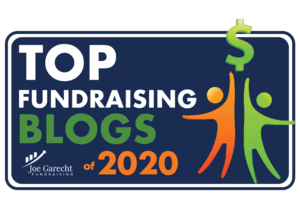If you’re like most nonprofit development professionals, you’re doing it. You’re using one particular word in your fundraising effort that is costing your nonprofit organization a fortune.
I have the research that proves it.
If you talk with prospects about and ask them for a “bequest” commitment, you’re leaving enormous sums of money on the table. That’s the conclusion of recently released data shared by Russell James, JD, PhD, CFP, a leading philanthropy researcher based at Texas Tech University.
 James will be sharing his research-based insights during a free webinar hosted by MarketSmart, on Wednesday, November 19 at 1:00 PM (EST). Words That Work: The Phrases That Encourage Planned Giving will explore the words and phrases that inspire donors to give and give more. Conversely, James also will look at the words and phrases that development professionals traditionally use that are actually counter-productive, such as the word bequest.
James will be sharing his research-based insights during a free webinar hosted by MarketSmart, on Wednesday, November 19 at 1:00 PM (EST). Words That Work: The Phrases That Encourage Planned Giving will explore the words and phrases that inspire donors to give and give more. Conversely, James also will look at the words and phrases that development professionals traditionally use that are actually counter-productive, such as the word bequest.
Consider this: A 2014 survey of 1,418 individuals found that 23 percent of respondents were “interested now” in “making a gift to charity in my will.” By contrast, only 12 percent were “interested now” in “making a bequest gift to charity.”
In other words, talking about bequest giving cuts your chance of getting a bequest commitment nearly in half! For greater results, it’s better to use simple, approachable language. As James suggests, when communicating with donor prospects, it’s a good idea to imagine you’re talking with your grandmother.
Not only do the individual word choices we make have a massive impact on the money we raise, how we use simple phrases can likewise make a huge difference.
James recently reported that 3,000 actual testators in the UK, not simply survey takers, were randomly placed into one of three groups when speaking with an estate planner:
- No reference to charity.
- Would you like to leave any money to charity in your will?
- Many of our customers like to leave money to charity in their will. Are there any causes you’re passionate about?
When the estate planner did not raise the subject of charitable giving, five percent of testators initiated the inclusion of at least one charity. In the second group, which was asked about including a charity, 10.4 percent agreed to do so. Clearly, asking has a significant, positive impact. However, members of the third group, which heard that others were including charities in their will, were even more likely to make a commitment. Now, here’s one of the key findings: Among those in the third group, 15.4 percent included at least one charity in their estate plan.
The commercial sector refers to the simple phrasing used with the third group as the bandwagon effect or social-norm effect. People are more likely to take action if they know others are already doing so. As the research demonstrates, this principle holds true when encouraging people to include a charity in their estate plan.
Interestingly, the positive impact does not stop at just the percentage of folks willing to make a charitable plan.
The bandwagon effect also dramatically affects the size of the commitment. Among members of the first group who made a charitable plan, the average size was $5,610. Among those in the second group, the average gift size was $5,291. Among those in the third group, the average gift size was $11,333!
By using a simple social-norm phrase, charities can significantly increase the percentage of prospects that make a planned charitable gift commitment as well as the size of that commitment. For the researched groups, here’s how the actual dollar commitments broke down in total, with each group containing 1,000 prospects:
Choosing the right words and phrases can have a hugely positive impact on your fundraising program. Conversely, using traditional words and phrases could cost your organization dearly.
Words matter. Now that James points the way to powerful words and phrases, there’s no excuse for using weak ones.
You’ll learn much more during James webinar. Because space is limited, be sure to register today by clicking here.
You can also learn some additional power words and phrases identified by internationally recognized market researcher Frank Luntz that I share in my book, Donor-Centered Planned Gift Marketing. As Luntz says:
[T]he power of poignant language is immense, but the destructive power of an ill-thought sound bite is unending and unforgiving. Successful, effective messages—words and language that have been presented in the proper context—all have something in common. They stick in our brains and never leave, like riding a bicycle or tying our shoelaces. Not only do they communicate and educate, not only do they allow us to share ideas—they also move people to action. Words that work are catalysts. They spur us to get up off the couch, to leave the house, to do something. When communicators pay attention to what people hear rather than to what they are trying to say, they manage not merely to catch people’s attention, but to hold it.”
That’s what Michael Rosen says… What do you say?
Update (November 21, 2014): If you missed the webinar with Dr. Russell James, fear not. You can listen to a recording of the program by clicking here.










Leave a comment